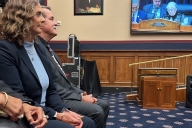You have /5 articles left.
Sign up for a free account or log in.
The University of Wisconsin at Madison Police Department issued an apology Wednesday after a list of safety tips posted to the department's website was criticized for appearing to blame victims of campus crimes, particularly survivors of sexual assault.
"We realized some wording should have been phrased better and in a more sensitive nature," the department stated in an editor's note attached to the now-revised list. "For that, we apologize."
The post, called "Tools You Can Use," was originally titled "Shedding the Victim Persona: Staying Safe on Campus." That title, as well as a passage telling students to "make yourself a hard target" prompted a harsh backlash on blogs and social media. The controversy emerged at a time when many advocates for women on campus are accusing colleges of not doing enough to prevent sexual assault, with administrators often telling women how not to get raped rather than telling men not to commit rape.
"A victim looks like a victim," the post originally read. "If you move from one destination to another, and the only thing you recall about the trip is the last text message you received, then there’s a problem. The military calls it 'keeping your head on a swivel' and it’s probably the most important thing you can do to ensure your safety. If you present yourself as easy prey, then expect to attract some wolves."
The post has since been edited to clarify that the item was referring to students of both genders burying their heads in their smartphones instead of keeping their eyes on their surroundings. The references to wolves and prey have been removed, as has the phrase "a victim looks like a victim." But the damage was done. Numerous student and women's groups have long been trying to make the point that what a woman wears or how she acts does not justify any form of harassment, let alone sexual assault, and many read the tips as countering that message.
"Oh, dear police department, we know, we know," Jia Tolentino wrote at Jezebel. "We know we look like victims. We know we present as easy goddamn prey. How lovely to be reminded by the police department. What a nice opportunity to think about the fact that none of the women I know who have been raped have ever reported it. Not one!"
Referring to the post's suggestion that a student should keep his or her "head on a swivel," one Jezebel commenter asked, "So literally live every moment like I'm an Army Ranger deployed to Afghanistan?"
Other recent attempts at delivering safety tips on campuses have drawn similar criticism.
In an email sent to students and faculty last year, Pam Wheelock, vice president of student services at the University of Minnesota, wrote that “in too many instances, the actions of students give criminals the advantage they need.” Earlier this year, a Pennsylvania State University issued a crime alert with tips that students should keep in mind “in order to reduce your risk of becoming a victim.” In both instances, students expressed concern that the university was victim-blaming.
While the tips were all well-intentioned, said Kevin Kruger, president of NASPA: Student Affairs Administrators in Higher Education, administrators should be careful with how the suggestions are worded, particularly when discussing sexual assault.
“Intent is important, but so is how people perceive the language you’re using,” Kruger said. “We have to be careful phrasing things so that it puts responsibility not on the victim but on the larger community. It is appropriate for campus police to talk about risk reduction, but it can be done without getting into a place of victim blaming.”
It’s always important to discuss alcohol safety with students, he said, or how both men and women should avoid walking alone at night. But sometimes the way those tips are phrased – like suggesting they should be done specifically to avoid becoming a victim – can contribute to a student feeling responsible if he or she does become a victim.
“That can be tough to get right, so you have to listen to how your students perceive something and take ownership when you don’t get it right,” Kruger said.
When it’s not done right and steps aren’t taken to correct that language, students may be less likely to report a crime, said Anne Hedgepeth, government relations manager at the American Association of University Women, as they could feel as though they’re the ones who did something wrong. While more colleges are starting to understand how to be sensitive about what language they use, missteps like Wisconsin’s are still happening too often, Hedgepeth said.
“I think this is a really good example of why folks putting out this information that could be construed as being a part of a response to sexual assault should put themselves in the shoes of a survivor,” she said. “One of the things we also want to avoid is perpetuating damaging myths that don’t really acknowledge the fact that for many survivors of sexual violence, the perpetrator is someone they know. It’s really valuable to make clear to students that these tips apply differently to different crimes, to clarify where they might actually not be the best practice.”
In a statement, the UW-Madison Police Department said that in the future it would "do a better job of ensuring that the intent and focus" of similar articles are more clear.
"The intent of this article is not, and never has been, specifically about the prevention of sexual assault," the department said. "Many have taken this article out of context. We understand the vast majority of sexual assaults are committed by acquaintances of the survivor. This article speaks solely to crimes commonly committed by strangers."






![First text message: "Yes?" Second message: "This is embarrassing to say, but law school isn't fair for us men, the women are always outperforming us at [sic]. It's obvious women are taking over the legal profession nowadays." Third text: "Who is this?"](/sites/default/files/styles/image_192_x_128/public/2024-09/Text_messages_law_2.jpg?itok=0QWP419B)

